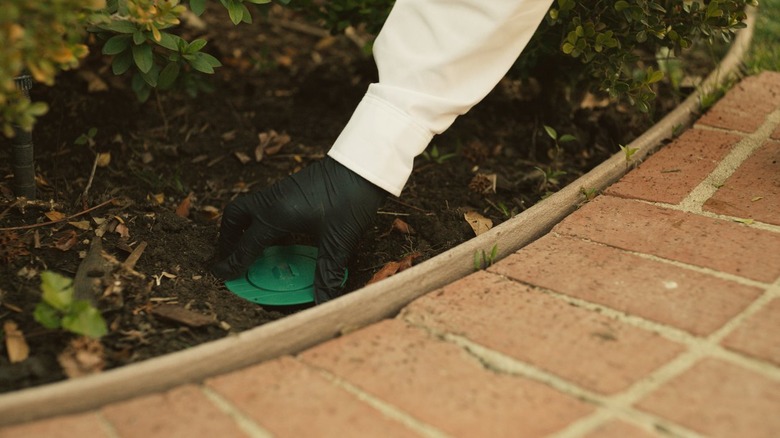4 Reasons Why Pest Control Should Always Be On Your Spring-Cleaning List (Plus Tips On How To Do It)
Springtime means it's time for a home refresh — and not just in terms of style. Whether you approach spring cleaning with excitement or dread, there are a few must-dos to add to your list. One vital agenda item you might be overlooking? Pest management.
"It is best to prepare your home for pests when the change of temperature occurs, since pests will be ready for the warm weather, too," says Brian Harrison, marketing director at Orkin®, the pest-management pioneer that's been a leader in the field for 120 years. That doesn't just mean the usual (cockroaches, spiders), but also ants, centipedes, and stingers like bees and wasps, all of which thrive in temps above 60 degrees, according to Harrison.
Because pests are very much not invited to your springtime dinner party, scroll on to learn why seasonal pest management is crucial — plus a few simple preventative measures to keep insects at bay.
1. Pests can overwinter in walls.
1. Pests can overwinter in walls.
While you cozy up indoors over the winter, pests might be doing the same. Some are known to "overwinter," or live through the cold months in storage areas or other low-light nooks, says Harrison. It's important to find these uninvited guests before they emerge from hibernation and crash your springtime plans. (Psst: Piles of hidden dead pests can also attract new ones.)
Tip
Trim plants away from the house. "Plants can serve as bridges insects cross to enter your home," says Harrison. "If you have grass or other plants growing right next to your foundation, insects are more likely to be present. So, be sure to keep a clear, plant-free zone around your home."
2. Warmer weather draws out more pests.
2. Warmer weather draws out more pests.
It's true: Hotter days entice insects, and they can become more active and visible in and outside of the home. One way to protect your abode from these pests? Calling your local Orkin® Pro, who can utilize advanced techniques developed by entomologists to handle the most difficult pest situations.
Tip
Reduce moisture sources. Harrison's overarching advice on moisture is to manage every and any water source. "Leaky faucets indoors and downspouts outdoors offer the water spiders, cockroaches and other pests what they need to survive," says Harrison. "And, don't forget mosquitoes outside, and to remove stagnant water sources in areas such as rain gutters and yard decorations."
3. Pests can slip through cracks and crevices.
3. Pests can slip through cracks and crevices.
Unwelcome pests can enter your space through even the seemingly smallest of cracks. With this in mind, there may be spots homeowners overlook, and Harrison recommends getting an Orkin® expert's help in identifying these areas. "Some of these areas include dark, damp basements and crawl spaces, or drier, warmer areas near vents and attics, depending on the species," Harrison says.
Tip
Toss the clutter. The more clutter that accumulates, the more safe havens pests have available. "Old keepsakes and unused equipment piled up in basements and garages can conceal pest entry points and offer shelter," says Harrison. "Also, be sure to clean out your pantries and closets as these are the perfect hiding places for pests."
4. It’s important to identify pests to avoid even bigger issues.
4. It's important to identify pests to avoid even bigger issues.
Identifying exactly what kind of pests may be in your home can help you prevent a relatively small problem from becoming a much bigger one. For example, Harrison notes that most spiders are not aggressive, but their presence can be a sign that other pests like cockroaches (which spiders eat) are inside the home. FYI: Cockroaches are known to reproduce quickly, so a sighting of one or two could suggest many more living in walls and dark spaces. (BRB, calling an Orkin® Pro now.)
Tip
Vacuum regularly, in addition to your spring cleaning deep dive. Harrison's pro tip: "Remove spiders and webs, as well as other pests and debris."


